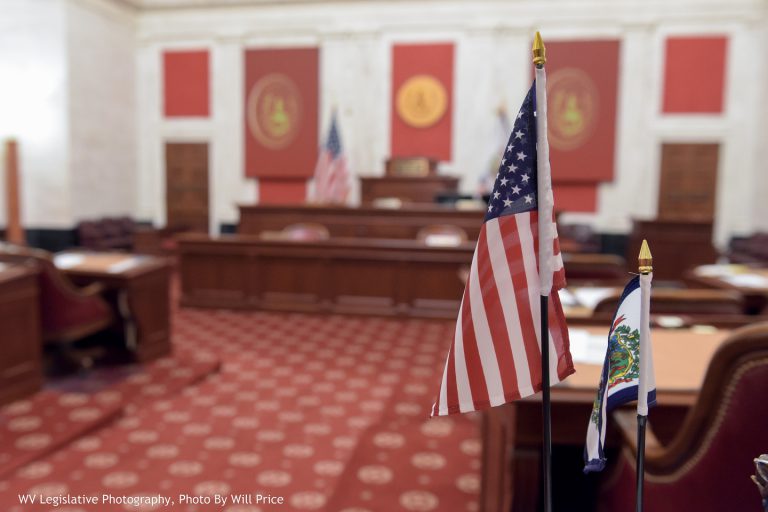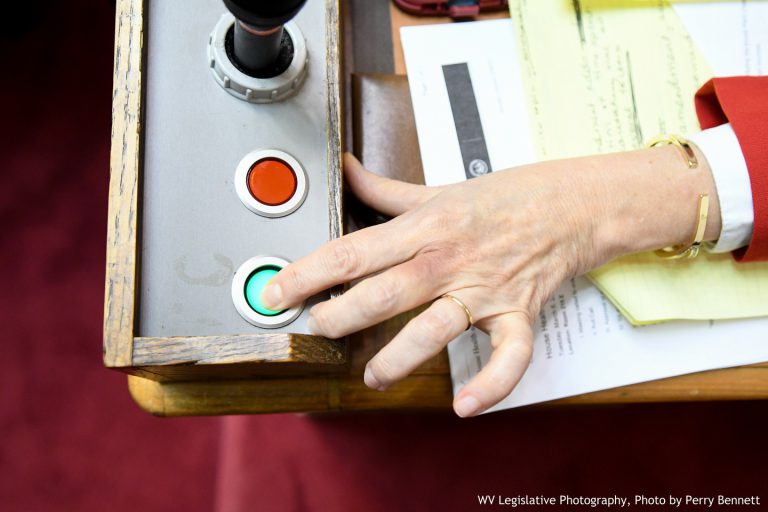As of 4 p.m., Wednesday, March 11th, 2009, the 29th day of the 79th Legislature’s 1st Regular Session, 552 bills have been introduced in the Senate. Of those, 23 have passed and have been sent to the Senate for its consideration. Some of those bills passed were:
Senate Bill 251 would authorize county commissions, municipalities and boards of education that receive lottery revenues to issue bonds to construct public projects. This would allow county commissions, municipalities and boards of education to construct more public projects, which could create jobs and stimulate the economy.
Senate Bill 370 would permit only a community criminal justice board to require the payment of a supervisory fee by anyone participating in a community corrections program. Under current law, circuit judges, magistrates, and municipal court judges are also authorized to require the payment.
Sampling of Bills Introduced in the Senate
Senate Bill 459 would require the Board of Coal Mine Health and Safety to perform a thorough risk management assessment of the current health and safety programs, with particular attention paid to identifying specific problem areas where current resources could be directed for maximum benefit.
Senate Bill 460 would include telecommunications devices, such as cell phones, digital phones and modem equipment devices, as contraband in jails, state correction facilities, juvenile facilities and juvenile detention centers.
Senate Bill 463 would permit hunting on Sundays on licensed hunting preserves once a hunter obtains the appropriate licenses and permits.
Senate Bill 478 would create the Surface Owners Protection Act. Under this act, certain duties would be created which oil and gas operators would owe to surface owners. The bill would require an agreement between the surface owners and operators regarding the use of the land and require that the owners of the land be notified when oil and gas operations are initiated.
Senate Bill 482 would require operators of mining sites to include in their community impact statements, the affects mining will have on cemeteries in close proximity to or on the mining site.
Senate Bill 485 would require all children who enter a public or private school for the first time, whether kindergarten or first grade, to have a dental examination by a licensed dentist. If a parent or guardian cannot prove their child has had an examination, they would be guilty of a misdemeanor and fined no less than $10 and no more than $50 for each offense.
Senate Bill 488 would require parental consent for minors to use a tanning bed. The parent or guardian would be required to give the facility a signed statement saying they have read and understand the warnings given by the facility and consent to their child using the tanning beds. If a child is under the age of 14, they must be accompanied by an adult.
Senate Bill 491 would require handicap restroom facilities and stalls in all public places to be constructed with two handrails or grab bars to accommodate persons in wheelchairs and other persons who need assistance.
Senate Bill 500 would reduce the wholesale tax on heating fuel, off-road fuels, kerosene and propane used for home heating purposes or off road use from 5 percent to 4.85 percent. This bill would take effect January 1, 2010.
Senate Bill 501 would prohibit animals from being euthanized by way of a gas chamber. Under current law, when being euthanized, animals must fall into the category of being “humanely destroyed.” The term “humanely destroyed” does not include euthanizing animals by means of a gas chamber.
Senate Bill 510 would expand the number of mine employees who may be tested for drug or alcohol abuse by requiring all mine operators to create drug-free workplace programs applicable to safety-sensitive employees on mine property. The bill would also grant immunity from wrongful discharge lawsuits to those employers who discharge employees who test positive.
Senate Bill 512 would allow any former state higher education employee who becomes a member of the Public Employees Retirement System to transfer credit in his or her Higher Education Retirement Plan to the Public Employees Retirement System.
Senate Bill 524 would change the maximum age requirement for new police hires in municipalities. This bill would change that age from 35 years to 45 years as the maximum age a new police hire may be at the time of application.
Senate Bill 532 would allow the Division of Banking to participate in the Nationwide Mortgage Licensing System and Registry (NMLSR), a system for the licensing and registration of mortgage brokers and lenders. This bill would also make changes in the licensing and renewal process of mortgage lenders and brokers to be consistent with the NMLSR and to implement a comprehensive mortgage loan originator licensing system.
Senate Bill 535 would allow municipalities and county commissions to set a closing time for bars licensed by the Alcohol Beverage Control Commission. The ordinance would over-rule any authority to set the closing time granted to the Alcohol Beverage Control Commissioner under current law.
Senate Bill 542 would terminate the payment of tolls on West Virginia’s turnpikes by the year 2020.



 The House designated the month of March 2009 as “American Red Cross Month” with House Resolution 29. The Red Cross brought along Ernie the Emergency Response Vehicle, an interactive remote control car. Children from Harrisville Elementary in Ritchie County (pictured) interacted with the educational miniature car.
The House designated the month of March 2009 as “American Red Cross Month” with House Resolution 29. The Red Cross brought along Ernie the Emergency Response Vehicle, an interactive remote control car. Children from Harrisville Elementary in Ritchie County (pictured) interacted with the educational miniature car.
 Today in the House, a formal citation was presented to the West Virginia Federation of Democratic Women in recognition of their outstanding dedication and commitment to their party and the election process throughout West Virginia.
Today in the House, a formal citation was presented to the West Virginia Federation of Democratic Women in recognition of their outstanding dedication and commitment to their party and the election process throughout West Virginia. Two bills were on first reading, a resolution was adopted and the Senate introduced several bills as the 2009 Regular Legislative Session reached the 30th day today.
Two bills were on first reading, a resolution was adopted and the Senate introduced several bills as the 2009 Regular Legislative Session reached the 30th day today.  Wheeling resident, James Edward Dague (pictured), made a special visit to the Senate today, but not as himself. To commemorate Lincoln’s 200th birthday celebration at the Capitol, Dague arrived at the Senate Chamber as none other than President Abraham Lincoln. After taking the oath of office of the President of the United States, Dague gave Lincoln’s famous Gettysburg Address.
Wheeling resident, James Edward Dague (pictured), made a special visit to the Senate today, but not as himself. To commemorate Lincoln’s 200th birthday celebration at the Capitol, Dague arrived at the Senate Chamber as none other than President Abraham Lincoln. After taking the oath of office of the President of the United States, Dague gave Lincoln’s famous Gettysburg Address. 
